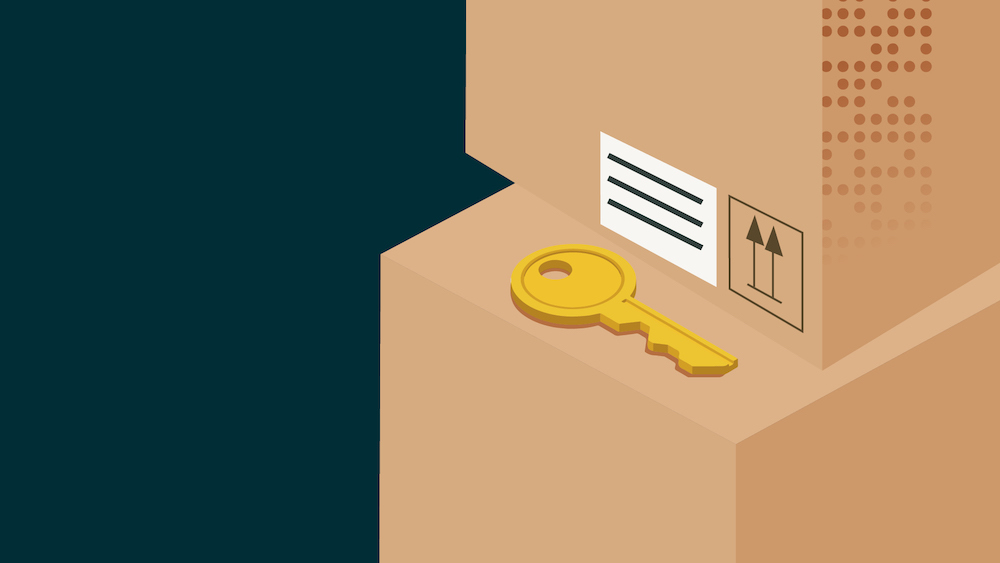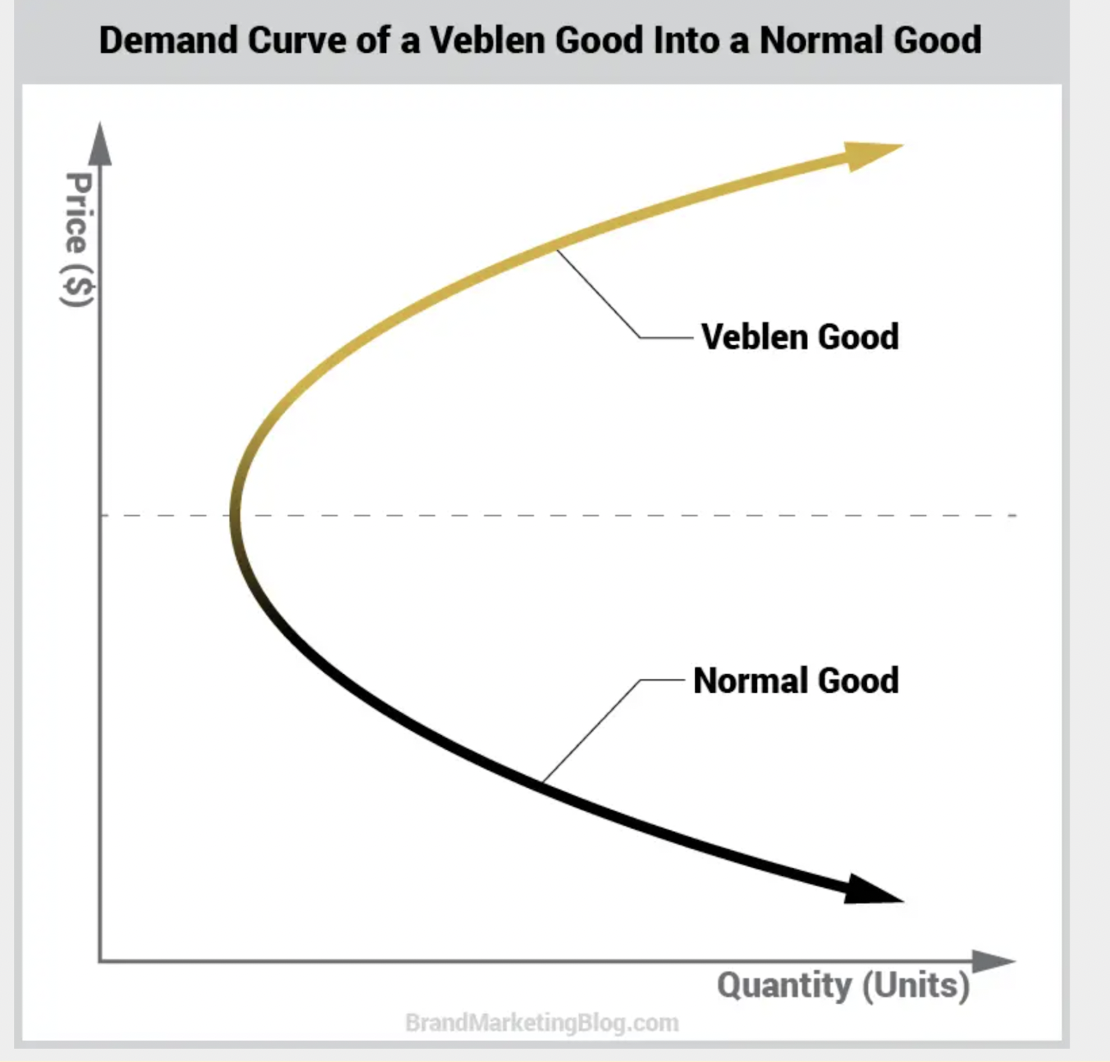
28 Aug 2023
According to the LA Times, there are an average of 300,000 things in the average American home. It’s no surprise that the average American home has grown in size over the past 50 years, reaching an average of 2,261 square feet in 2020. The same article on The Simplicity Habit notes that in 2021, the holiday season saw an average of $997.73 spent on gifts and other seasonal items, while spending on other [nonessential goods](https://www.radiusplus.com/keyword/nonessential goods) and goods reached a staggering $18,000 per year!
Americans love their things so much, the phenomenon has spawned studies galore, each attempting to explain the vast need for people to consume, sometimes, well beyond their means. A “Veblen Good” is an item which maintains a steady demand in the market, even as the price increases. A great example of this for 2023 would be the iPhone, which continues to hike prices, yet is seen as a status symbol in American society (and most others). A “Giffen Good” is a non-luxury product with an “upward-sloping” curve and no readily available alternatives. Examples of Giffen Goods are things like bread, wheat or even rice.

In my own rural neighborhood, one house stands out from the rest. An elderly farmer in the area has been collecting scrap cars, appliances, farming equipment and anything else he can get his hands on - all proudly displayed in his front, back and both side yards. While we were sure he was running a scrap metal business when we first moved in, it seems that not a single pile of scrap has been diminished in the past 2 years. These things are obviously this farmer's idea of [Veblen goods](https://www.radiusplus.com/keyword/veblen goods).
When considering goods through the lens of Veblen vs. Giffen, the next logical conclusion is that people (and your potential customers) are storing what they consider to be “Veblen” goods, and donating “Giffen” goods. Now as [self storage owners](https://www.radiusplus.com/keyword/self storage owners) and [operators](https://www.radiusplus.com/keyword/self storage operators), we know that all the treasures we’ve seen going in and out of our unit doors are not typically gemstones, Berkin bags or priceless items. It simply comes down to perception. It's a good rule of thumb by default to assume that whatever is being stored by your customers is (to them) a priceless artifact of their memory, and as valuable to the owner as a Lamborghini or Ferrari is to its owner. The Wall Street Journal says that “Americans spend $1.2 trillion annually on nonessential goods.”
As an avid thrift shopper, I’m loath to discourage anyone from donating their used goods to local charities. Sadly, while The Secondary Materials and Recycled Textiles Association (SMART) says that 95% of all textiles and clothing can be recycled, I was shocked to find that my regular donations might not be finding their way to the charity I thought I was donating to.
Now that we have an understanding of why customers are choosing to store their goods, and how much they spend on the nonessential goods they are buying and storing, it’s time to consider how you, as a self storage facility owner or operator, can:
If given the choice between letting go of their things and keeping them, most people would choose the latter option. After all, there is often some sort of emotional connection to even the most seemingly worthless items. When I really think about it, some of my most prized possessions are things like the sea shells friends have found and brought home to me as gifts.
The ultimate goal is to put yourself in a position to be “thought leadership” for your customers. [Thought leadership](https://www.radiusplus.com/keyword/thought leadership) is the process of demonstrating your expertise in a particular area (in this case, self storage). If you have done everything right, your customers will see you as an expert in your area of expertise, and will be more likely to take advice from you, or seek you out for information. Let’s go through several tactics you can use as a self storage facility owner or operator to remind customers that their things hold value, and they should store them at your facility.
A great way to signal to customers that their treasures have value, is to offer useful information, referrals, and even advice and tips on how and what to store their things. The more you set yourself up as a partner with your customers, the more they will trust you - and the easiest way to do this is to give. Give advice, time, credit, feedback and back it up by giving customers promotional products or promotional pricing.
I can’t tell you how many pairs of pants, sweaters and shoes I’ve donated over the years, only to want or need them when styles come back around. The same goes for sports equipment, winter wear like snowsuits or jackets, old computers or tech, or even basic tools like allen wrenches or screwdrivers - things you don’t appreciate until you need one and can’t find one.
The best way to remind customers of their attachment to their things is to invoke a sense of nostalgia. Nostalgia is a powerful tool, even spawning its own branch of marketing. [Nostalgia marketing](https://www.radiusplus.com/keyword/nostalgia marketing) is used to create a sense of warmth and familiarity between customers and a business. A great way to do this is to ask questions about what items they plan to store, and what it means to them. Then follow it up with advice on how to safely store their most important treasures, like the benefits of a climate controlled unit. Look for common ground with your customers by telling them a story of something you’ve lost or given away, only to miss years later.
Be open with customers about what they can and can’t store at your facility. You probably already know that sometimes the strangest things hold sentimental value. For example, my partner refuses to part with an old kitchen table that doesn’t fit in our home - but it stays with us because his grandfather made it by hand. Avoid discouraging renters from storing their treasures, unless of course those treasures might create a nuisance or unsafe situation for other renters and staff (think chemicals, trash or food).
While I am a firm believer in recycling old clothing and household items, I’ve also occasionally become overzealous and donated things I wish I had kept. When potential customers come to check out your facility or visit your website, be sure to offer all the advice you can on what to store and how to store it! You never know if that one bit of information is the signal to your customer to go ahead and hold onto their things! Perhaps they didn’t know that your storage facility was priced so fairly or your units were just right for their treasures!
For more information on self storage strategies for owners and operators, visit the Radius+ blog, where we dive into all things “self-storage” and how to communicate and close the deal with customers at your facility.